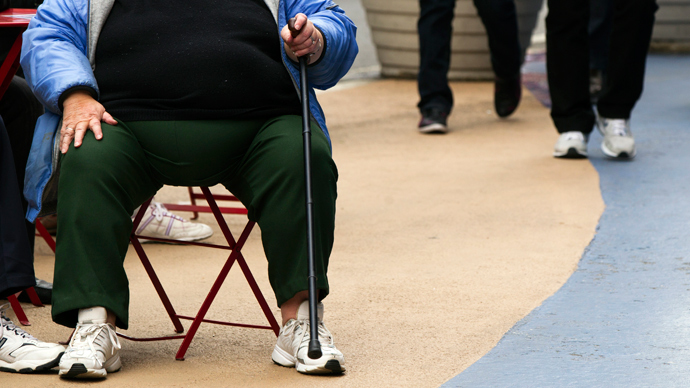Third of Mississippians to have diabetes by 2030, doctors claim

As Mississippi continues to struggle in the fight against obesity, a leading state physician estimates that one third of the local population could have diabetes by 2030.
As a result, many citizens could end up with disabilities that require expensive treatment, with big consequences for the state’s economy and labor force.
“We're going to have about a third of our population with diabetes by 2030,” deShazo told the Guardian. "If you look at the economics of that, the downstream disability, it's very difficult to calculate the long-term effects but it's very hard to tell how the state can support itself.”
According to a report by the Trust for America's Health and the Robert Wood Johnson Foundation, 12.3 percent of Mississippi’s population already has type 2 diabetes, the highest in the United States based on data from 2010. Looming over that statistic is the fact that Mississippi is also home to one of the most obese populations in the country, with 34.6 percent of its citizens categorized as obese. Louisiana tops the list at 34.7 percent, but thirteen states all have obesity rates over 30 percent.
Although obesity has a clear impact on human health – it can lead not just to diabetes, but also to cancer, high blood pressure, stroke, and other ailments – deShazo is also concerned by its potential effect on the economy. If younger people continue to be diagnosed with diabetes and ultimately end up with disabilities, the number of healthy, working individuals could shrink and put a squeeze on Mississippi’s finances.
“We're seeing 30- and 40-year-old people getting type 2 diabetes that we used to see in 50- and 60-year-old people,” deShazo added to the Guardian. “So now that disability curve is shifting further and further to the left, to a younger and younger under- or unemployable population.”
Ground zero for preventing this kind of future has been efforts to lower child obesity rates, but those attempts have hit their own share of obstacles. There’s been a notable dip in child obesity for the state’s affluent white population, but not for African Americans or the poor.
To make matters even more difficult, Mississippi does not have the healthcare resources necessary to deal with such a situation. Nearly 20 percent of the population does not have health insurance, and the state declined the Medicare expansion offered under the Affordable Care Act, which would have covered between 200,000 and 400,000 individuals.
As RT reported last year, obesity rates across the United States have continued to climb. In 2012, nearly 29 percent of the country’s population was labeled obese, marking the 15th straight year an increase has been noted. The American Medical Association has classified obesity as a disease, hoping that putting the health concern in a different context will inspire more action to combat the epidemic.
Obesity isn’t just an American problem, though. Earlier this month, a new study revealed that obesity rates in developing countries have tripled since 1980, affecting more than 900 million people around the world. The same report estimated that of the globe’s entire population, 1.45 billion are obese or overweight.













